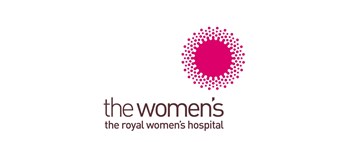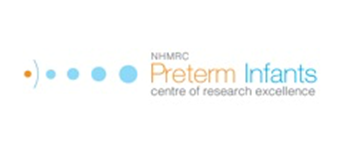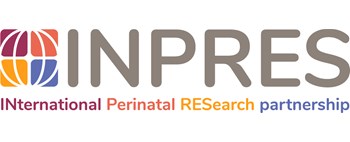Parents and Families
Thank you for your interest in the POLAR Trial.
This trial is recruiting infants that will be born extremely prematurely and will require breathing support immediately after delivery. We hope that the Frequently Asked Questions on this page address any questions you might have.
If you cannot find the information you are looking for on this page, please feel free to contact us by clicking on this link here
Very premature babies almost always need help to breathe immediately after birth. By applying gentle pressure, often by using a mask over their nose and mouth, this helps to open their lungs with air and oxygen so that they can start to breathe for themselves. This also makes it more comfortable for them to breathe.
To help with this nearly all preterm babies receive a treatment called positive end-expiratory pressure, or PEEP. PEEP applies a gentle pressure to a baby’s lungs between breaths that makes it easier for the baby to breath and prevents the lungs from collapsing after each breath.
Currently we do not have enough evidence on the right amount of PEEP to give at birth. As a result, doctors around the world give different amounts (or levels) of PEEP to premature babies at birth. In this study we will compare 2 different approaches to PEEP treatment. At the moment we do not know if one approach is better than the other.
The study aims to compare two different approaches to PEEP treatment given to premature babies’ lungs at birth – Static PEEP and Dynamic PEEP. Babies will be randomised and placed in either group upon birth.
Static PEEP group:
In this group, the PEEP level (the amount given to your baby’s lungs) stays the same over time. This is called ‘static’ PEEP.
Half of the babies in this study will be in this group.
Dynamic PEEP group:
In this group your baby will start at a higher pressure of PEEP for a brief period to help open the lungs at birth. The PEEP level can then be adjusted (up or down) as your baby responds to the treatment. We have information that premature babies may benefit from a brief period of higher PEEP immediately at birth when the lung is hardest to open and most likely to collapse.
Once the clinical team know the baby’s lungs are open, the PEEP pressure is then decreased. This is called ‘dynamic PEEP’. In this approach, the PEEP used at birth is higher than used during static PEEP. The clinical team will make changes to the PEEP levels in response to how well your baby is breathing.
Half of the babies in this study will be in this group.
This study aims to enrol 906 babies from around the world. Up to 25 hospitals will be involved internationally. We are working closely with other researchers and doctors that look after premature babies in these hospitals as part of a collaboration. For babies who are a part of the POLAR trial, the PEEP groups and treatments are exactly the same in all hospitals globally.
This study has been initiated by a group of doctors from Australia, the Netherlands, and the USA, all who look after premature babies.
The trial is being coordinated by researchers at the Murdoch Children’s Research Institute, Melbourne Australia, who is acting as the Sponsor for the trial, and will be conducted in up to 25 hospitals that deliver premature babies within Australia, Europe, the Middle East, and the USA.
Babies can join this study if they are born between 23 weeks and 29 weeks of pregnancy and need help to start breathing at birth. Your baby will be in the study from when they are born until they are about 2 years old.
If you decide to join the trial, you will be asked to sign the consent form. Apart from the level of PEEP used to help a baby’s lungs, the treatment for all babies in both groups is exactly the same and follows a standard pathway for premature babies.
You do not get to choose which group your baby is put in to. To try to make sure the groups are the same, each baby is put into a group by chance (random). Your baby has an equal (one in two) chance of being in either group – the static PEEP group or the dynamic PEEP group. The clinical team will know and will tell you which group your baby is in.
This research project has been designed like this to make sure the researchers interpret the results in a fair and appropriate way and avoids study doctors jumping to conclusions.
During care in the delivery room, the clinical team monitors your baby’s response to treatment by assessing their heart rate, how well your baby is breathing and their oxygen levels. If your baby is breathing well, they will just need to keep the mask on their face with CPAP, or if your baby needs more support, short extra ‘breaths’ are given using ‘PPV’ breaths.
Babies who do not respond to higher pressure breaths using a mask will have a breathing tube placed into their windpipe and be connected to a ventilator (breathing) machine to give positive pressure ventilation.
If at any stage the clinical team thinks that your baby is not responding to either treatment, they will follow our normal guidelines and give your baby more breathing support. Once your baby is settled, a member of the clinical team will update you on their progress.
We will collect information about your baby’s progress from the normal data that is collected about all babies in care via hospital medical records. We will also collect information on the long-term progress of your child by inviting you and your child to an appointment when they are about 2 years old, to see how they have grown and developed. We will also collect medical information about the pregnancy from the mother’s medical history.
We cannot guarantee or promise that your baby will receive any benefits from this research. We know that PEEP is essential to help premature babies breathe, but we do not know the best level of PEEP to use or whether there is a difference between the two groups.
We hope that in the future, other babies will benefit from this study, because the knowledge learned may improve the way we help premature babies to start to breathe in the future.
Babies born very prematurely are at risk of many complications. Some of them will die, whether they are in this study or not. We believe, based on the information that is available today, that the risks of being in this study are similar to the risks that exist for premature babies having standard medical care immediately after birth.
Premature babies are at risk of a condition called “pneumothorax”. A pneumothorax happens when air leaks out of the lung into the space between the lung and the rib cage. This trapped air may resolve by itself or if it stops the lung from fully expanding, it can make breathing harder and babies may become unstable. This may cause a fall in oxygen levels, heart rate or blood pressure until the trapped gas is released.
If this were to happen, a plastic tube may need to be placed between the ribs to release the trapped gas. For some babies, a breathing tube needs to be placed in the windpipe and additional breathing help given with PPV.
Under-developed premature lungs are at higher risk of a pneumothorax, including when receiving CPAP, PPV or support from a breathing machine. This air leak can happen whether a baby is in this study or not and happens in about 1 in 11 babies born very prematurely.
The exact role of PEEP levels in causing a pneumothorax is unknown, with some studies suggesting lower PEEP levels may increase risk and others higher levels. We do not believe there is a higher risk of developing a pneumothorax from being in this study, but it may be possible.
We will also be looking out for side effects of the study treatment. If we find any new risks during the time your baby is in the study, we will tell you. There may be side effects that the researchers do not expect or do not know about and that may be serious.
For all large studies like POLAR, a safety committee is set up to monitor the study. The committee is a group of independent doctors and scientists who have reviewed and agreed to the study. They will monitor the study safety issues at all the hospitals involved. If they find unexpected problems, the study will be stopped or changed to reduce any risks to babies.
While your baby is participating in this research project, they can have all the regular care they need in the Neonatal Intensive Care Unit (NICU) and after.
If you or your doctor want to withdraw your baby from the trial, then you are free to do so at any time. If you decide that you do not wish for any further information to be collected about your baby, you are free to say so, although de-identified information that has been collected up to that point will form part of the research project results and continue to be analysed by the research team. This is to ensure that the results of the research project can be measured properly and to comply with any regulatory requirements and laws.
When the clinical trial is finished your baby will receive any normal care that they need. When the project is completed, we will send you a summary of the results.
If you have any questions, please speak to your hospital medical team. Further information about the study is also be available on this website.
All information about you and your baby’s health will be kept private and confidential. The only people allowed to look at the information will be the doctors who are running the study, the staff at the Trial Coordinating Centre, and the regulatory authorities who check that the study is being carried out correctly. A privacy note is also available on the study website.
Joining the clinical trial is voluntary. If you do not wish for your baby to take part, they do not have to. If you decide that they can take part and later change your mind, you are free to withdraw your baby from the trial at any stage.
Your decision that your baby can or cannot take part, or that they can take part and then be withdrawn, will not affect their routine treatment, relationship with those treating them, or their relationship with their treating hospital.
There are no additional costs associated with participation in this clinical trial, nor will you or your baby be paid. All medication, tests and medical care required as part of the research project will be provided to your baby free of charge.
This research project is being conducted by the POLAR Trial group, headed by A/Prof David Tingay at the Murdoch Children’s Research Institute, Melbourne, Australia.
This research has been funded by the Medical Research Future Fund (Australian Government) International Clinical Trials Collaborations Grant #1170957. There is no commercial sponsorship or funding for the POLAR Trial.
No member of the research team will receive a personal financial benefit from your baby’s involvement in this research project.
Who is responsible for your data?
The data controller for this trial is the Sponsoring organisation, the Murdoch Children’s Research Institute.
Your data will be processed in accordance with all relevant local and international Data Protection Laws and regulations.
How we use your personal data
As a publicly funded organisation, we have to ensure that it is in the public interest when we use personally identifiable information from people who have agreed to take part in research and/or clinical trials. This provides the legal basis for our use of your data; GDPR Article 6(1)(e). This means that when you agree to take part in a research study, we will use your data in the ways needed to conduct and analyse the research study. Health and care research should serve the public interest, which means that we have to demonstrate that our research serves the interests of society as a whole. To ensure we carry out the research to the highest standards we comply with all national and international Clinical Trial Regulations and Standards for the conduct of Human Research i.e. the National Health and Medical Research Council (NHMRC) National Statement on Ethical Conduct in Human Research and the European Union’s Clinical Trials Regulation 536/2014 amongst others.
How long we keep your data
The Sponsor will keep personal data about you for up to 25 years after the study has finished in line with relevant legislation.
At the end of this retention period, your personal data will either be deleted or rendered anonymous (non-identifiable).
We may need to retain personal data for longer if it is necessary to fulfil our purposes, including any relating to legal or reporting requirements. We may also retain personal data for further research for which a legal basis exists. This will always be done in accordance with relevant data protection laws.
How we protect your data
We protect your personal data against unauthorised access, unlawful use, accidental loss, corruption or destruction.
We use technical measures such as encryption and password protection to protect your data and the systems they are held in. We also use operational measures to protect the data, for example by limiting the number of people who have access to the databases in which your data is held and using unique reference numbers to identify participants rather than names wherever possible.
We keep these security measures under review and refer to Institute Security Policies to keep up to date with current good practice.
Sharing your data
Your personal data which are collected and managed by the Sponsor will be used only to allow us to carry out this clinical trial. Data from which you cannot be identified may be shared with other research groups in the future, who are doing similar research. This ‘de-identified’ information will not identify you and will not be combined with other information in a way that could identify you. The information will only be used for the purpose of health and care research and cannot be used to contact you or to affect your care. It will not be used to make decisions about future services available to you, such as insurance.
Your Rights and Choices
Under certain Data Protection Laws, including the European Union’s (EU) General Data Protection Regulation (GDPR), which came into effect on 25 May 2018, you have the following rights in relation to the information that we hold about you (i.e. your ‘personal data’):
- You have the right to know the information collection and storage practices of this clinical trial.
- You may change your mind at any time after you have provided any information and have the right to know how you can opt out of any information collection, release, or use.
- You have the right to delete or remove your and your baby’s information from the clinical trial database or request that we remove or delete it.
- You have the right to know how your and your baby’s information will be used and by whom.
- You have the right to know to whom we may release your and your baby’s information.
- You have the right to inquire at any time as to whether we are processing personal information about you and your baby, request access to your and your baby’s personal information, and ask that we correct, amend, or delete your and your baby’s personal information where it is inaccurate by contacting us at: POLAR@mcri.edu.au
What can you expect from us?
- We will protect any personal information you provide to us or that we collect about you at all times in accordance with applicable regulatory standards and our legal obligations.
- We will notify you if our information collection and storage practices change.
- If for some reason your personal information was released to or accessed by unauthorized persons, we will notify you as necessary to help protect you from harm, embarrassment or distress.
- More information can be obtained via the MCRI General Privacy Policy.








